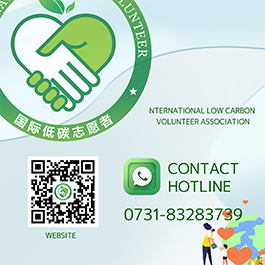Household Carbon Reduction Convention
Household Carbon Reduction Convention
1. From one's own family - community family - urban family - national family - global family.
2. I voluntarily and actively promote the concept of family carbon reduction, and encourage my own family and other families to participate in activities.
3. Start from yourself, start from the small things around you.
Clothing:
1. Try to choose environmentally friendly fabrics made of cotton and linen, as producing synthetic fiber clothing requires more oil and energy consumption.
2. On the premise of ensuring daily needs, buy less unnecessary clothes. Because clothing consumes a large amount of energy during production, processing, and transportation, while generating pollutants such as exhaust gas and wastewater.
3. Saving enough clothes in a bucket before washing can save water and electricity.
4. Do not use a dryer unless necessary. You can choose natural air drying or sun exposure to save energy.
5. Please believe that being obsessed with fur is just an impulse to return to our ancestors.
Food:
1. Promote the construction of open kitchens without oil fumes and promote the rational use of resources.
2. Use low-carbon and energy-saving appliances to save electricity and reduce the use of fossil fuels.
3. Cooking three meals a day can account for 65% of household carbon emissions, and using low-energy, smoke-free cooking utensils can quickly reduce household carbon emissions.
4. Actively participate in low-carbon food salons, learn cooking techniques, and promote low-carbon living.
5. Do not overeat meat. Every Monday is Low Carbon Volunteer Vegetarian Day, advocating for a vegetarian diet and promoting healthy eating.
6. Before consuming fruits, vegetables, and meat, it is essential to clean them thoroughly to ensure safe entry and reduce the burden on the body.
7. Try to choose local seasonal fruits and vegetables to reduce carbon emissions caused by transportation and packaging.
8. After cooling down, wrap the leftovers in cling film and send them to the refrigerator. Hot air not only increases the power of the refrigerator, but also makes it prone to frosting, resulting in dual electricity consumption.
9. When dining at a hotel, use only one dish and encourage friends who dine together to develop the habit of not changing dishes.
10. Clean Your Plate Campaign. Waste is the biggest high carbon, and if you can't finish it, you must pack it.
11. Not smoking or smoking less is the greatest protection for oneself and the earth.
Stay:
1. Advocate for garbage classification. Cloth, plastic, metal, and waste paper can be collected through door-to-door recycling, allowing non renewable resources to be reused and reducing energy waste.
2. Try to use clean energy - electricity - and reduce the use of gas, gas, and coal balls.
3. When purchasing electrical appliances, choose appliances with energy efficiency level 1 to save electricity.
4. Turn off the lights casually and cut off the power when the appliances are not in use. Television and other household appliances can consume 10% of electricity when not in use.
5. When using air conditioning for cooling and heating, 26 ° C is sufficient. Regularly cleaning the air conditioning not only benefits health, but also saves electricity.
6. It is advisable to store 80% of the food in the refrigerator, as excessive or insufficient food will consume electricity.
7. Opening a strong gear on a washing machine is more energy-efficient than opening a weak gear, and can also extend the lifespan of the machine.
8. Choose insulation mode when the water heater is frequently used. Insulation is more energy-efficient than reheating.
9. Try to choose a shower, as the water consumption of a bathtub is at least 6 times that of a shower.
10. You can lower the float in the toilet water tank by 2cm, which can save 4 cubic meters of water per year.
11. Please turn off the faucet when brushing your teeth. Brushing teeth without turning off the faucet can connect up to 109 bathtubs in a year.
12. Low foam laundry detergent is more water, electricity, and time saving.
13. Resist the use of disposable items such as chopsticks, towels, shower caps, toothbrushes, etc. Although disposable items bring temporary convenience to our lives, they bring disasters to the ecological environment. They have accelerated the depletion of Earth's resources and generated a large amount of garbage, causing environmental pollution.
14. Reduce the use of plastic products. Disposable plastic products cause serious environmental pollution due to littering and difficulty in degradation.
Line:
1. Drive less, walk more, ride more bicycles, take more public transportation, and promote healthy and green travel.
2. More opportunities to climb stairs without taking the elevator, save energy, and earn your own health.
Action:
1. Change starts from oneself. Actively participate in the Family Carbon Reduction Public Welfare Action and Low Carbon Life Public Welfare Forum, promote low-carbon concepts, and practice low-carbon living.
2. Actively participate in family carbon reduction experience exchange meetings, small-scale low-carbon sharing events, etc., share your low-carbon stories, and inspire people around you to practice low-carbon and protect the earth.
3. Actively participate in low-carbon public welfare activities, such as "Turn off lights for 1 hour", "Arbor Day", "National Low Carbon Awareness Week", "Environmental Protection Public Welfare Action", etc., to effectively protect the environment and practice low-carbon living.
4. Actively participate in low-carbon cultural and artistic activities, infect thousands of people with the power of culture, and actively participate in low-carbon environmental protection movements.

家庭减碳公约
1、由自身家庭—社区家庭—城市家庭—全国家庭—全球家庭。
2、本人自愿积极宣传家庭减碳的理念,带动自身家庭和其他家庭参与活动。
3、从自己做起,从身边的小事做起。
衣:
1、尽量选择棉、麻质的环保面料衣服,因为生产化纤维衣服需要消耗更多的石油和能源。
2、在保证生活需要的前提下,少买不必要的衣服。因为服装在生产、加工和运输过程中,要消耗大量的能源,同时产生废气、废水等污染物。
3、衣服攒够一桶再洗,可以节约水电。
4、非必要不使用烘干机,可以选择自然风干或晒晒太阳,节约能源。
5、请相信,痴迷皮草不过是一种返祖的冲动。
食:
1、提倡无油烟开放式厨房的建设,促进资源合理化使用。
2、使用低碳节能电器,节约电能,减少化石能源使用。
3、一日三餐的烹饪,油烟排放可占家庭碳排放的65%,使用低能耗、无油烟的烹饪器具,可迅速降低家庭碳排放。
4、积极参与低碳美食沙龙,学习烹饪技巧,推广低碳生活。
5、不过量食肉。每周一为低碳志愿者素食日,倡导每周一素,普及健康饮食。
6、果蔬肉类食用前务必清洗干净,保证入口的安全,减少身体的负担。
7、尽量选择本地产时令果蔬,可减少因运输及包装产生的碳排放。
8、剩菜冷却后用保鲜膜包好再送进冰箱。热气不仅增加冰箱做功,还易结霜,双重费电。
9、在酒店用餐只使用一个碟碗,并动员一起用餐的朋友养成不换餐碟的习惯。
10、光盘行动。浪费是最大的高碳,吃不完一定打包。
11、不抽烟或少抽烟,是对自己和地球最大的保护。
住:
1、倡导垃圾分类。布料、塑料、金属、废纸,可联系上门回收,让不可再生资源得到再次利用,减少能源浪费。
2、尽量使用清洁能源——电,减少使用煤气、燃气、煤球。
3、购买电器时选择节能能效为1级的电器,节省电能。
4、随手关灯,电器不使用时切断电源。电视等家电不使用时可消耗10%的电量。
5、使用空调制冷制热时26°C即可。定期清洗空调,不仅为了健康,还可以省电。
6、冰箱内存放食物的量以占容积的80%为宜,过多或过少都费电。
7、洗衣机开强档比开弱档更省电,还能延长机器寿命。
8、热水器经常用的情况下选择保温模式。保温比重新加热更省电。
9、尽量选择淋浴,浴缸泡澡的用水量至少是淋浴的6倍。
10、可以把马桶水箱里的浮球调低2cm,一年可以省下4立方水。
11、刷牙请关上水龙头。刷牙不关水龙头,一年可接满109个浴缸。
12、低泡型洗衣粉更省水省电省时间。
13、抵制使用一次性物品,如一次性筷子、毛巾、浴帽、牙刷等,一次性用品虽然给我们的生活带来了短暂的便利,却给生态环境带来了灾难。它们加快了地球资源的枯竭,产生大量垃圾造成环境污染。
14、减少使用塑料用品。一次性塑料用品由于乱丢乱扔并且难于降解,以致造成环境污染严重。
行:
1、少开车,多步行,多骑自行车,多乘坐公共交通工具,倡导健康绿色出行。
2、多一些不坐电梯爬楼梯的机会,节省能源,换来自己的健康。
动:
1、改变从自己做起。积极参加家庭减碳公益大行动、低碳生活公益论坛,传播低碳理念,践行低碳生活。
2、积极参加家庭减碳经验交流会、小型低碳分享会等,分享自己的低碳故事,从而感染身边的人践行低碳,保护地球。
3、积极参加低碳公益活动,如“关灯1小时”、“植树节”、“全国低碳宣传周”“环保公益行动”等等,切实保护环境,践行低碳生活。
4、积极参与低碳生活文艺活动,以文化的力量感染万千群众,积极投身低碳环保运动中来。








